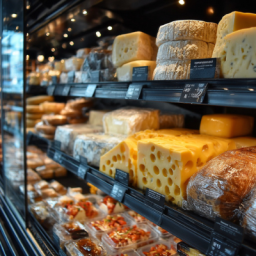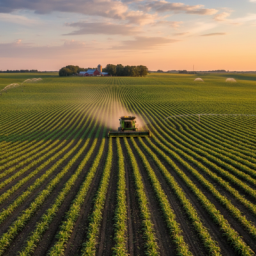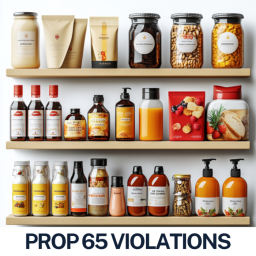
What is the Cresco Labs class action about?
A recent Illinois federal case has spotlighted how cannabis products are labeled and classified. Matthews v. Cresco Labs, Inc. accuses the Chicago-based cannabis giant and its affiliates of mislabeling certain “vapable cannabis oil” products.
The plaintiff, John Matthews, alleges Cresco marketed vape cartridges as “cannabis concentrates” when, under Illinois law, they should have been treated as “cannabis-infused products” (CIPs), which carry stricter THC limits. Cresco’s “High Supply Space Fruit” 500-mg cartridge, he claims, exceeded the 100-mg THC cap applicable to CIPs under the Illinois Cannabis Regulation and Tax Act.
What does Cresco Labs argue in response?
Cresco Labs has asked the federal court to dismiss the suit, arguing that product classification and labeling enforcement are matters for state regulators, not private plaintiffs.
In filings reviewed by Law360 and Tobacco Reporter, Cresco maintains that:
- The Illinois Department of Agriculture’s Cannabis Program is the agency authorized to approve and oversee cannabis product packaging and labeling.
- The Department has “confirmed” the products at issue are legal to sell in Illinois.
- The Illinois legislature never intended for consumers to bring private suits over cannabis labeling, since the state’s regulatory framework gives exclusive enforcement power to agencies, not individuals.
Cresco’s motion echoes a June 2025 state-court decision that dismissed a similar potency-labeling claim. That court found private enforcement of cannabis labeling statutes was inconsistent with Illinois’ regulatory scheme.
What are the plaintiffs claiming?
Plaintiff Matthews says Cresco mislabeled vape oils to bypass the 100-mg THC per-package limit imposed on CIPs. He argues that because the products are vaporized rather than smoked, they don’t fit the statutory definition of “concentrate.”
He claims that this mislabeling:
- Misled consumers about potency, legality, and content.
- Created a risk of unlawful possession (since mislabeled products might exceed lawful THC limits).
- Resulted in financial injury, consumers paid for products they would not have purchased had they known the truth.
The class seeks to represent all Illinois purchasers of Cresco’s “vapable oil” products, alleging violations of the Illinois Consumer Fraud and Deceptive Business Practices Act and other state laws.
What’s happened in court so far?
The case began in Cook County Chancery Court and was removed to federal court in February 2025 under the Class Action Fairness Act (CAFA).
In July 2025, U.S. District Judge Georgia N. Alexakis denied the plaintiff’s motion to remand the case back to state court, keeping jurisdiction at the federal level.
The court found the complaint plausibly alleged misclassification of the products but ruled that any broader questions about CAFA exceptions or damages would require discovery.
As of October 2025, Cresco’s motion to dismiss is pending. No hearing date has been set, but the outcome could have major implications for how cannabis companies across Illinois, and potentially nationwide, structure product labeling and THC disclosures.
Why does this case matter to the cannabis industry?
This dispute goes far beyond Cresco. It raises important regulatory and litigation issues for every cannabis manufacturer and retailer:
- Product classification drives compliance.
Whether a product counts as a “concentrate” or an “infused product” determines its legal THC threshold and packaging requirements.
- Private enforcement limits.
Cresco’s argument — that only regulators can enforce labeling statutes — could, if successful, block similar consumer lawsuits under Illinois law.
- Evolving consumer expectations.
As legal cannabis becomes more mainstream, consumers increasingly rely on potency labeling to make informed decisions. Any perception of mislabeling risks both litigation and reputational harm.
- Broader trend of THC-potency litigation.
Similar suits have emerged nationwide, testing how far consumer protection laws can stretch into cannabis regulation.
How does this compare to other cannabis labeling lawsuits?
Illinois is seeing a wave of cases targeting THC potency claims, including actions against Verano, Acreage Holdings, and other operators. Some courts have consolidated or dismissed these suits, while others remain active.
Legal observers note that Illinois’ strict state oversight may shield companies from private class actions, but it also raises the bar for internal compliance. Companies must ensure their packaging matches Department of Agriculture approvals and THC testing data.
What’s next?
The Northern District of Illinois has yet to rule on Cresco’s dismissal motion. If the motion fails, discovery could explore how Cresco classifies its products and whether the Department of Agriculture approved those classifications.
A ruling that allows the case to proceed may prompt regulators and the legislature to clarify whether vape products fall under “concentrate” or “infused product” definitions.
Either way, the case will help define who can hold cannabis companies accountable for labeling accuracy consumers or regulators.
frequently asked questions (FAQ)
What law governs cannabis labeling in Illinois?
The Illinois Cannabis Regulation and Tax Act and Department of Agriculture rules govern labeling, potency limits, and product categories.
Can consumers sue over mislabeled cannabis products?
That’s the core question of this case. Cresco argues only regulators can enforce labeling laws; plaintiffs say consumer protection statutes still apply.
How much THC can be in a cannabis product under Illinois law?
“Cannabis-infused products” can’t exceed 100 mg THC per package, while “concentrates” follow different rules tied to possession limits.
Could this affect national cannabis brands?
Yes. Illinois’ rulings could influence how other states interpret private enforcement and product classification in cannabis labeling disputes.
What should companies do now?
Audit labeling and THC disclosures, verify Department of Agriculture approvals, and prepare for possible class actions testing compliance boundaries.
Key Takeaway
The Cresco Labs case highlights a new battleground in cannabis compliance: how THC limits and product classifications intersect with consumer protection law. Whether the court sides with regulators or consumers, cannabis companies should review their labeling, testing, and classification policies to ensure they can withstand both regulatory and private scrutiny.
About Juris Law Group
Juris Law Group represents businesses across regulated industries, including cannabis, food, and consumer goods. Our attorneys advise on labeling compliance, product liability, and emerging consumer-protection trends nationwide.













